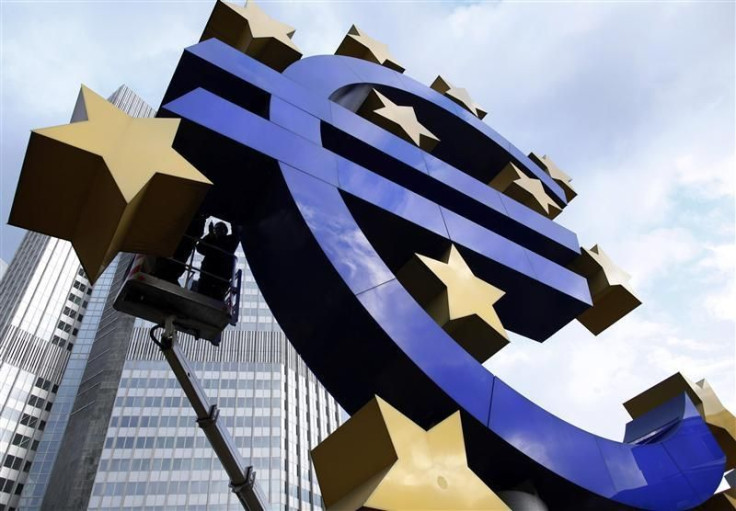ECB Aims to Restore Calm After S&P Downgrades, Official Says

(Reuters) -- The European Central Bank will do all it can to calm the situation after Standard & Poor's downgraded several euro zone members' debt ratings in the past week, ECB Governing Council member Ewald Nowotny said Sunday.
Calling in particular Italy's two-notch downgrade very dramatic, he told an Austrian television panel discussion the S&P moves had created a sensitive environment in the euro zone debt crisis.
For the European Central Bank's part, everything that is within our possibilities will be done to bring about a relaxation (of the situation). We have made additional liquidity available and I think it is very important that overall a certain calming down takes place, he said.
He reiterated that it was also crucial to implement agreed measures such as putting into force a safety net for struggling euro zone members.
Nowotny, also head of the Austrian central bank, said he did not think S&P's one-notch downgrade of his country would have much impact on its borrowing costs because two other ratings agencies had kept its AAA of late. A report by Goldman Sachs he saw on Sunday came to the same conclusion, he added.
Where the step by Standard & Poor's is in my view really dangerous is on the European level, he said.
We had a certain relaxation process of late and with this step - a sweeping blow that affects almost all European states - this has been made significantly more difficult.
Nowotny said he had spoken with S&P about the downgrades and believed they reflected the agency's misgivings about how Europe was addressing the debt crisis.
They have doubts in general about the system we are conducting in Europe, namely that we will advance via (fiscal) consolidation measures with a very restrictive policy of the European Central Bank, he said.
This contrasted with the aggressive intervention by the U.S. central bank, and may explain why Britain still has a top debt rating despite higher debt, Nowotny said. This is a basic political discussion that has to be conducted, he said.
S&P cut its rating for Austria one notch to AA-plus with a negative outlook as part of the sweeping downgrades.
Nowotny said it was important to avoid slipping into a protracted debt cycle across Europe.
The danger is that the longer the consolidation is drawn out, the more debt ratios rise, which makes the next consolidation more difficult. What we certainly don't want is a situation that even remotely resembles what we are now seeing in Italy, in Portugal - not to mention Greece - where a country is governed from abroad.
(Reporting by Michael Shields; Editing by Dale Hudson)
© Copyright Thomson Reuters 2024. All rights reserved.




















